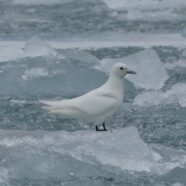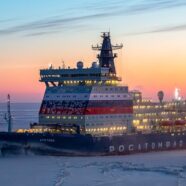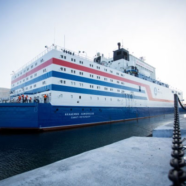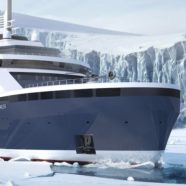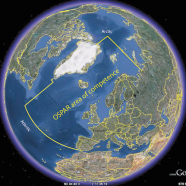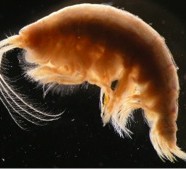The disoriented Arctic
Robin des Bois (Robin Hood) has been an observer to the OSPAR Convention for the Protection of the Marine Environment of the North-East Atlantic since 2005. It is the only NGO based in France with this status. The Convention’s area covers a total of 13.5 million km2, divided into 5 regions: Arctic Waters (5.53 million km2), Greater North Sea (and English Channel), Celtic Sea, Bay of Biscay and Iberian Coast, and Wider Atlantic. The Arctic is the meeting point of river, marine, and atmospheric pollution emitted by sub-Arctic and coastal countries. On October 4, November 28, 2022, January 23, May 25, October 16, 17 and 18, 2023, and January 30-31, 2024, Gaëlle Guilissen, representing Robin des Bois, took part in the first cycle of the Arctic Outcomes Working Group, in person or virtually. The objective is to draw up a final document, to be delivered in 2024, outlining the threats facing the Arctic Waters region and proposing remedial action. A further meeting is scheduled for March 6. Robin des Bois will come back to this vital issue later this year.
Arctic : Ponant, the French cruise company, has made a white duck
While Ponant published inner views from its future icebreaker, Commandant Charcot, a fiasco upset the French flag in its conquest and pollution of the Arctic Ocean.
Robin des Bois and the OSPAR Commission. Cork, Ireland. June 26-29, 2017
OSPAR is an International Cooperation Convention dedicated to the Protection of the Marine Environment of the North-East Atlantic, which came into effect in 1998. France, Belgium, Denmark, Germany, Finland, Iceland , Ireland, the Netherlands, Norway, Portugal, Spain, Sweden, the United Kingdom of Great Britain and Northern Ireland and the European Union are members, as well as Luxembourg and Switzerland due to the influence that the rivers flowing through them have on the Atlantic. Robin des Bois (Robin Hood) has had observer status at the OSPAR Commission since 2005.
OSPAR loses the Arctic
Report
OSPAR comes from the fusion in 1992 of the Paris Convention for the Prevention of Marine Pollution from Land-based Sources and the Oslo Convention for the Prevention of Marine Pollution by navy and aircraft immersion operations. The latter was initiated following the shock of the oil spill from the Torrey Canyon March 18, 1967.
OSPAR is dedicated to the protection of the northeast Atlantic Ocean. It is a pilot fish. The work of its 5 committees – Biodiversity, Offshore Industry, Radioactive Substances, Environmental Impact of Human Activities, Hazardous Substances and Eutrophication – allows better understanding and combat of the many pressures on marine ecosystems from the open sea of Portugal to the Arctic Ocean. This success is notably materialized by a quality status report without concession of the OSPAR zone in 2010 (1). Seven years later, the OSPAR pilot fish is threatened of asphyxia by the Arctic countries. Robin des Bois has returned from the Biodiversity and Offshore Industry committees which gathered in Berlin and in Oslo the first two weeks of March.
THE COP SHOW
The global warming dramaturgy is prompting to cartoon. In its name, so-called philosophers, real politicians, and disoriented NGOs are spreading rumours.
It’s wrong to say that global warming has caused modern human migration. This migration is due to incompetent leaders, religious intolerance, civil war, bombardments, the pillaging of natural resources, and the poverty that results from this.
It’s also misleading to claim that the increasingly dire death tolls of cyclones and other hazards are directly caused by global warming. Haphazard urbanization, makeshift housing, and deforestation are the main reasons.
Premiere in the Arctic : whale meat goes through the North-East Passage
The Winter Bay belonging to a European ship owner just left the port of Tromsø in Norway. She is now sailing in the Barents Sea. She carries about 1800 tons of whale meat from Iceland. The Winter Bay is expected in Osaka, Japan, on August 28. The Arctic option, 14,500 km, allows the ship to avoid diplomatic complications, environmental NGO protests and the usual stops in West Africa and South Africa.





